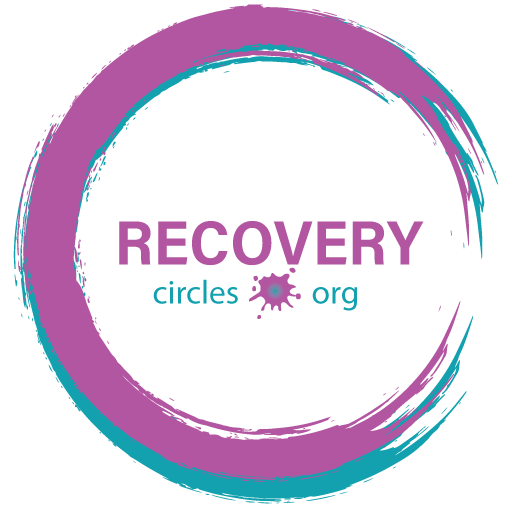Depression Treatment
“Looking for a depression treatment center? Reach out to us at Sober House Philadelphia or keep reading to learn more about depression treatments and how we can help.”
You can also call us at (267) 412-3258
Featured In





“
I finally feel like I have a future. These people believed in me when I couldn’t.
– John L.
“
What I found here wasn’t just recovery housing in Philadelphia, it was a group of people who truly cared if I succeeded. They held me accountable and helped me rebuild.
– Tony F.
“
As a single mom, I needed a place I could trust. This affordable sober home in Philadelphia gave me that and more. I’m forever grateful.
– Jasmine T.
See more of our success stories
Depression is one of the most common mental health challenges in the U.S., affecting 1 in 15 adults, according to the American Psychiatric Association. In fact, it’s estimated that 1 in 6 people will experience depression at some point in their lives.
While feeling sad occasionally is a normal part of life, depression goes far beyond that. It can deeply affect your well-being, outlook on life, and ability to manage daily responsibilities. Left untreated, it can take a serious toll on your health and happiness. That’s why it’s so important to reach out for support.
At Sober House Philadelphia, we understand the weight of depression and offer comprehensive programs designed to help individuals regain control of their lives. You don’t have to face this alone — we’re here to help.
You can also call us at (267) 412-3258
What Is Depression Treatment?
Many people mistakenly believe that depression is simply “feeling sad.” But in reality, it runs much deeper and can quietly take a toll on a person’s life, especially when the right support and treatment aren’t within reach.
Depression treatment involves professional care and support for those struggling to manage overwhelming emotions and behaviors that disrupt their daily lives. The goal is to help individuals find relief, build coping strategies, and move toward healthier, more fulfilling lives.
At Sober House Philadelphia, we offer compassionate, effective treatment options designed to guide individuals through their recovery journey. With the right help, it’s possible to overcome depression, regain control, and rediscover a sense of purpose and well-being.
Does Sober Recovery Community Offer Depression Treatment Programs?
Sober House Philadelphia is fully equipped with a caring team and supportive services to help individuals recover from clinical depression.
In collaboration with trusted partners, we offer a range of treatment options to meet each person’s unique needs. Individuals can access outpatient mental health programs, which may include psychiatric care and medication management when appropriate.
But our care goes beyond clinical treatment. At Sober House Philadelphia, we believe in nurturing the whole person — focusing on areas like spirituality, life skills, personal growth, self-care, and building a supportive community. This well-rounded approach empowers individuals to better manage their depression, often without relying solely on medication or invasive procedures.
We understand that no two people experience depression the same way. That’s why our experienced team of mental health professionals takes the time to truly listen, understand each person’s story, and create personalized care plans that address their specific challenges.
Our approach centers on holistic wellness, meaningful connection, and compassionate recovery. We’re here to make sure every person feels seen, heard, and supported throughout their healing journey.

Sober Livings

Outpatient Treatments

Individualized Intensive Program

Sober Companions
What Is The Primary Cause Of Depression?
Depression is a serious mental health condition affecting millions of people around the world. It can be triggered by a mix of internal struggles and external challenges, and without proper treatment, it often worsens over time. If left unaddressed, depression can lead to additional mental health issues, including co-occurring disorders like substance use disorder, making recovery even more difficult.
We can group these causes into two main types:
Life Events
Serious or traumatic life events can leave a lasting impact on a person’s mental and emotional well-being, sometimes leading to severe depression. It can be triggered by the loss of a loved one, ongoing stress at work or school, family conflicts, unemployment, or experiences of abuse — whether physical, emotional, verbal, or sexual. These difficult moments can weigh heavily on someone’s heart and mind, making it crucial to seek compassionate, professional support.
Personal Factors
Personal factors also play a major role in the development of depression. These internal elements can include a person’s age, genetics, gender, and struggles with substance abuse, such as addiction to drugs or alcohol. While these factors may increase the risk of depression, understanding them is an important first step toward finding the right support and treatment.
When someone starts noticing these warning signs or risk factors, it’s important to seek help right away. The first step is reaching out to a local health department, mental health professional, or admissions counselor who can provide a proper assessment and recommend the best treatment options tailored to their unique situation. Getting the right support early makes a meaningful difference in recovery and overall well-being.
How Do You Treat Depression?
Treating depression isn’t as simple as it might seem. It requires careful attention, compassion, and the right personalized treatment plan to help each individual respond in a way that brings real, lasting change to their mental health and quality of life.
Most treatment plans typically involve a combination of medication and psychotherapy. Medications, like antidepressants, can help ease symptoms, especially for those dealing with moderate to severe depression. However, it’s important to remember that while medication can provide relief, it doesn’t address the root causes of depression — which is why further evaluation and ongoing care are essential for long-term healing.
On the other hand, psychotherapy offers different paths toward recovery. Approaches like cognitive behavioral therapy (CBT), dialectical behavior therapy (DBT), family therapy, eye movement desensitization and reprocessing (EMDR), support groups, and family counseling have all been shown to help people manage depression, develop healthier coping skills, and strengthen relationships with the people around them. These evidence-based therapies are tailored to each person’s needs and can play a powerful role in rebuilding hope and emotional resilience.
Cities We Serve
What Are General Methods Used To Treat Depression?
There are also many additional resources available to help people manage their depression symptoms and address other related mental health concerns, like substance use disorder and anxiety. One helpful first step is taking a free online assessment, which can offer guidance on the best course of action for treatment and connect individuals with the right support options for their unique needs.
Pharmacological Treatment
This type of treatment involves prescribing medications that can include antidepressants, monoamine oxidase inhibitors (MAOIs), selective serotonin reuptake inhibitors (SSRIs), serotonin-norepinephrine reuptake inhibitors (SNRIs), mood stabilizers, anti-anxiety medications, and stimulants. These medications help manage the symptoms of depression and support overall mental health.
Psychotherapy
Therapy is often the most recommended treatment approach, especially for mild cases of depression. It can take place in group settings or one-on-one sessions, helping individuals reframe their thoughts and behaviors to better manage their depression.
For those facing co-occurring disorders—like anxiety combined with substance use—residential treatment centers can provide a supportive environment. Staying temporarily at such a facility allows individuals to focus deeply on their therapy while receiving compassionate care from professionals who respect their dignity and honor their feelings throughout the healing process.
TMS (Transcranial Magnetic Stimulation)
Transcranial Magnetic Stimulation (TMS) is a non-invasive treatment that uses magnetic pulses targeted at areas of the brain involved in mood regulation. This therapy is typically recommended for individuals whose depression hasn’t improved with traditional therapy or medication and who are showing signs of worsening symptoms.
Alternative medicine
This approach to treating depression takes a holistic path, focusing on healing the mind and body together. It incorporates mindfulness and meditation practices to help individuals manage their symptoms, often through therapies like acupuncture, relaxation techniques such as yoga and tai chi, guided imagery, and creative outlets like music or art therapy.
Can Depression Be Cured?
While depression may not have a complete “cure,” there is always hope for improvement and healing. Studies show that 80 to 90% of people respond positively to treatment—whether through group therapy, individual counseling, or specialized programs that address both depression and related challenges like addiction.
At Sober House Philadelphia, we believe that with commitment to a personalized treatment plan, individuals can make real progress and regain hope for a healthier, more balanced life.
After completing their primary treatment, it’s important for people to continue their recovery by enrolling in relapse prevention programs—especially for those who have also received addiction treatment. This ongoing support helps maintain stability and supports the lifestyle changes necessary for lasting well-being.
How Does Sober Recovery Community Help Address Depression?
Sober House Philadelphia is not a treatment center that offers formal treatment programs, but rather provides valuable supplementary recovery services through a dedicated team of trained staff, counselors, and mentors.
We offer a variety of programs designed to support individuals during the critical early stages of their recovery journey. Our clients have the opportunity to reconnect with loved ones and express their feelings in a safe, open environment—one that is free from judgment and bias.
At Sober House Philadelphia, we believe in treating every person with the dignity and respect they deserve, encouraging healing by supporting their emotional, mental, and spiritual well-being. While we don’t provide traditional treatment programs like a clinical depression center, we work closely with our partner organization, The Heights Treatment, which offers specialized care for depression symptoms alongside addiction treatment.
Individuals seeking treatment through The Heights undergo a thorough admissions process, often with the involvement and approval of loved ones, before starting therapy and medication management.
Are There Depression Treatment Centers Near Me?
While treatment centers for depression and addiction aren’t always easy to find, Sober House Philadelphia offers supportive recovery services for those struggling with depression. No matter where you are in the country, our network makes help accessible.
With locations across major cities like Los Angeles, Houston, and New York, you can visit a nearby center to speak openly with caring specialists about your needs. Our friendly staff and experienced counselors are ready to guide you toward the recovery program best suited to your unique situation.
Here, you’re not just receiving support from professionals — you’re joining a community of clients, counselors, and mentors who will stand by you throughout your recovery journey.
Call our recovery specialists at Sober House Philadelphia today at (267) 412-3258 or fill out our contact form to learn how joining our Philadelphia sober living community can help you reclaim your life. Whether you’re seeking clean and sober housing, structured transitional support, or simply someone to talk to — we’re here for you.
